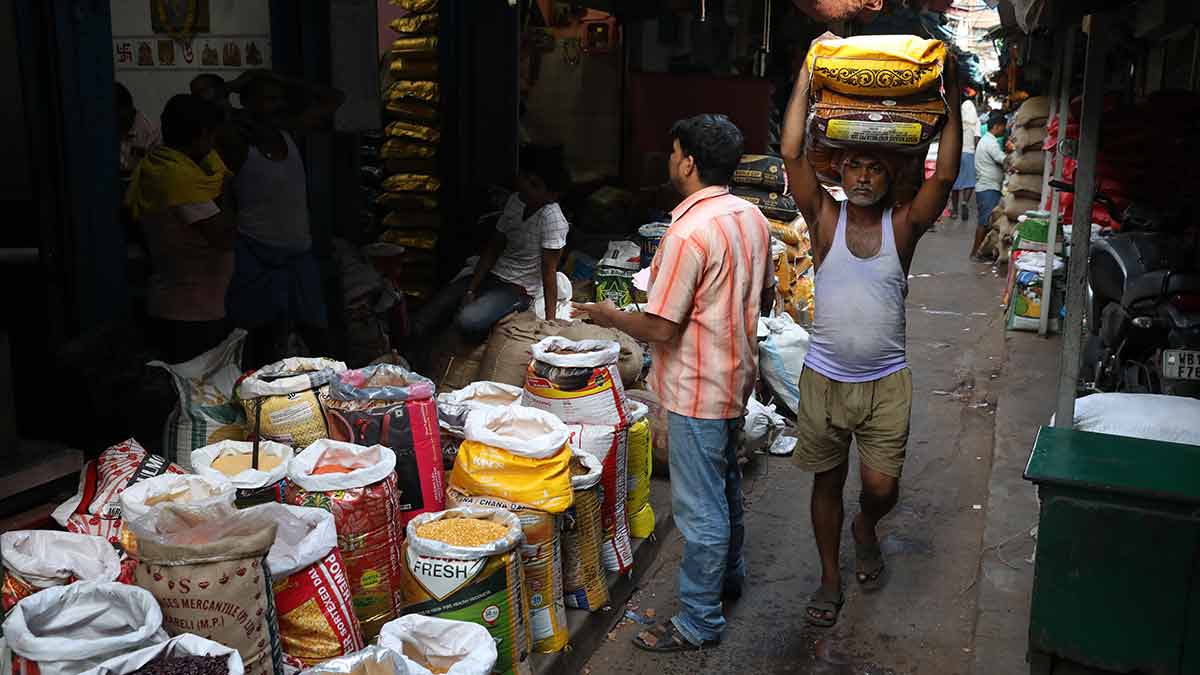Signs that consumers have cut back on their spending have been visible for some time now. Hindustan Unilever, the largest fast-moving consumer goods maker in the country, reported just 2 per cent sales growth in the October-December quarter, with a flat volume (number of packs sold) growth. Rival Godrej Consumer Products, too, reported a flat volume growth, with a 4 per cent sales growth in its standalone business.
"Demand conditions in India have witnessed temporary headwinds over the past few months, led by a slowdown in urban consumption," said Sudhir Sitapati, the MD and CEO of Godrej Consumer.
Signs of urban slowdown have also been visible in other areas like real estate. While premium homes are doing brisk business, sales of affordable homes have slowed, as have launches in that segment. A report by PropEquity last week pointed out that residential sales in the country's top nine cities declined 9 per cent to around 4.71 lakh units in 2024, while new supply fell 15 per cent to 4.11 lakh units.
High inflation, especially in food, which is pinching pockets of lower and middle-income families, and lower salary increments are among a few things that have hurt household budgets, in turn driving consumption lower.
Not surprisingly then, there is a growing expectation that in the upcoming Union Budget, Finance Minister Nirmala Sitharaman will announce measures to boost consumption.
Personal Income Tax
One area where a revamp has been due is in personal income taxes, especially for those who are still depending on the old tax regime to file their annual tax returns. The income tax exemption limits under various slabs like 80C and 80D haven't been changed for a long time now, for instance.
"Taxpayers are hoping for an enhanced rebate for lower-income individuals and an increase in the basic exemption limit under both tax regimes to help offset inflation," said Dhruv Chopra, managing partner, Dewan PN Chopra and Co.
A key expectation is also that the current exemption limit for long-term capital gains tax on equities, currently capped at Rs 1.25 lakh, may be increased to Rs 2 lakh, he says.
Also read
- From more sops to further easing of regulatory hurdles: What startups expect from Union Budget 2025
- Bearish grip on the market ahead of Union Budget; Sensex Nifty crack over 1% amid local, global uncertainties
- Health-tech founders pin hopes on a favourable Union Budget 2025
- Union budget 2025: Fintech industry seeks supportive policy measures, more focus on innovation and R&D
Madhavi Arora, lead economist at Emkay Global Financial Services, says "mild sweeteners" on personal taxes and concessional corporate tax schemes for manufacturing hubs/ FDIs are likely.
"Some tweaks in personal income tax slabs may be expected to improve disposable income of the middle-income strata," said Arora.
She feels the budget will be too populist to look "bleak", but the spending proportion of revenue expenditure over capital expenditure may be somewhat higher than seen in post-COVID years till the financial year 2024, with a focus on human capital and the agri sector.
Soumya Kanti Ghosh, group chief economic adviser at State Bank of India, suggests various options for rationalising direct taxes.
He calls for removing all exemptions and bringing all under the new income tax regime while retaining and enhancing the limit on the National Pension System (NPS) to Rs 1 lakh from Rs 50,000 and enhancing medical insurance exemption to Rs 50,000 from Rs 25,000. Further, he says tax rates should be rationalised at 15 per cent from 20 per cent at Rs 10-15 lakh income bucket and there should be a 15 per cent tax on deposits across all maturities and like other asset classes taxing it at redemption and not accrual basis.
In this "Pareto optimal solution" for rationalising direct tax, there will be the least revenue loss (Rs 50,000 crore or 0.14 per cent of GDP) and maximum gains to consumers, said Ghosh.
Capital Gains
In the budget last year, the finance minister made changes to the capital gains tax framework, raising short-term rates to 20 per cent from 15 per cent and long-term (LTCG) rates to 12.5 per cent from 10 per cent. This was done to align the capital gains tax across all asset classes. Niranjan Govindekar, partner corporate tax, tax and regulatory services, BDO India, feels some provisions need a relook.
"To streamline the capital gains tax structure by aligning tax rates/ period of holding across various sub-asset classes, for instance, treating international equities the same as domestic equities, debt funds the same as gold funds, and gold funds the same as gold ETFs," he pointed.
Also, now that the LTCG tax on securities is on par with other assets, the securities transactions tax (STT) should be abolished, he added.
Housing
Real estate players, too, will be closely watching the budget, hoping for more relief for consumers.
"Revising the current tax exemption limit on housing loans to Rs 5 lakh, in line with rising property prices and construction costs, could provide significant relief to homebuyers," said Pradeep Aggarwal, founder and chairman of Signature Global (India).
To further support homebuyers, waivers of stamp duty and GST for first-time homebuyers would offer much-needed financial relief, he felt.
Experts also call for revising the definition of affordable homes.
"The definition of affordable housing must evolve to reflect the reality of urban pricing with city-specific caps, ensuring that affordability isn't a distant dream for residents of high-demand cities like Mumbai and Bengaluru," said Saurabh Garg, co-founder and CBO of NoBroker.
Broadening the definition of affordable housing to include properties priced up to Rs 1 crore would align with evolving market dynamics, felt Aggarwal.



